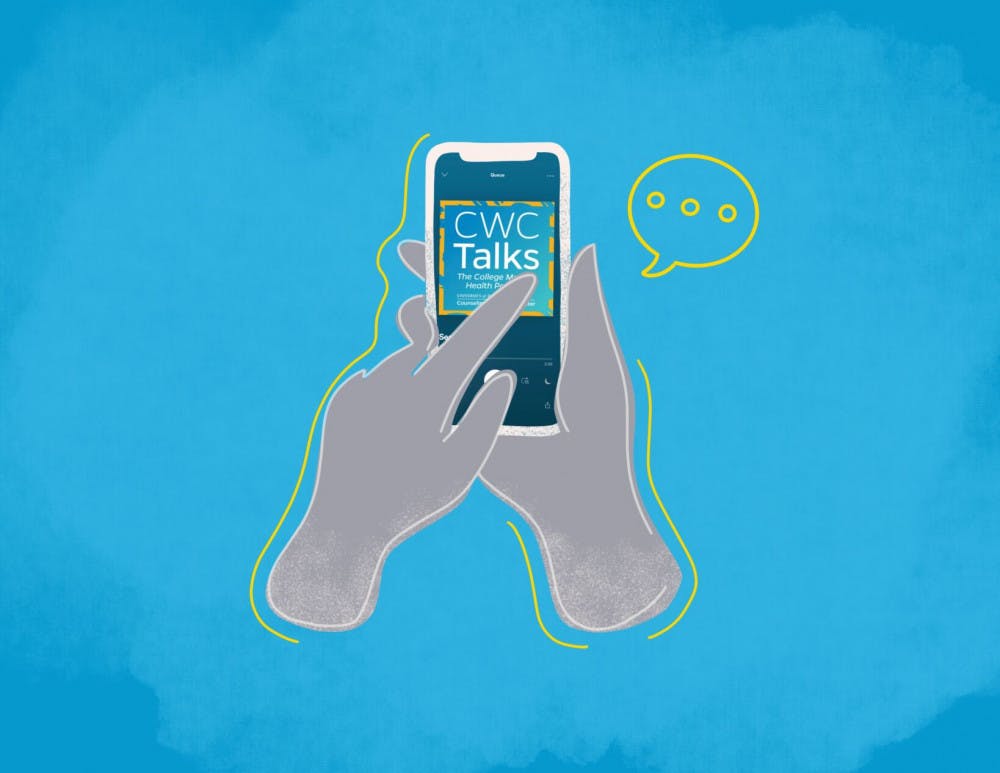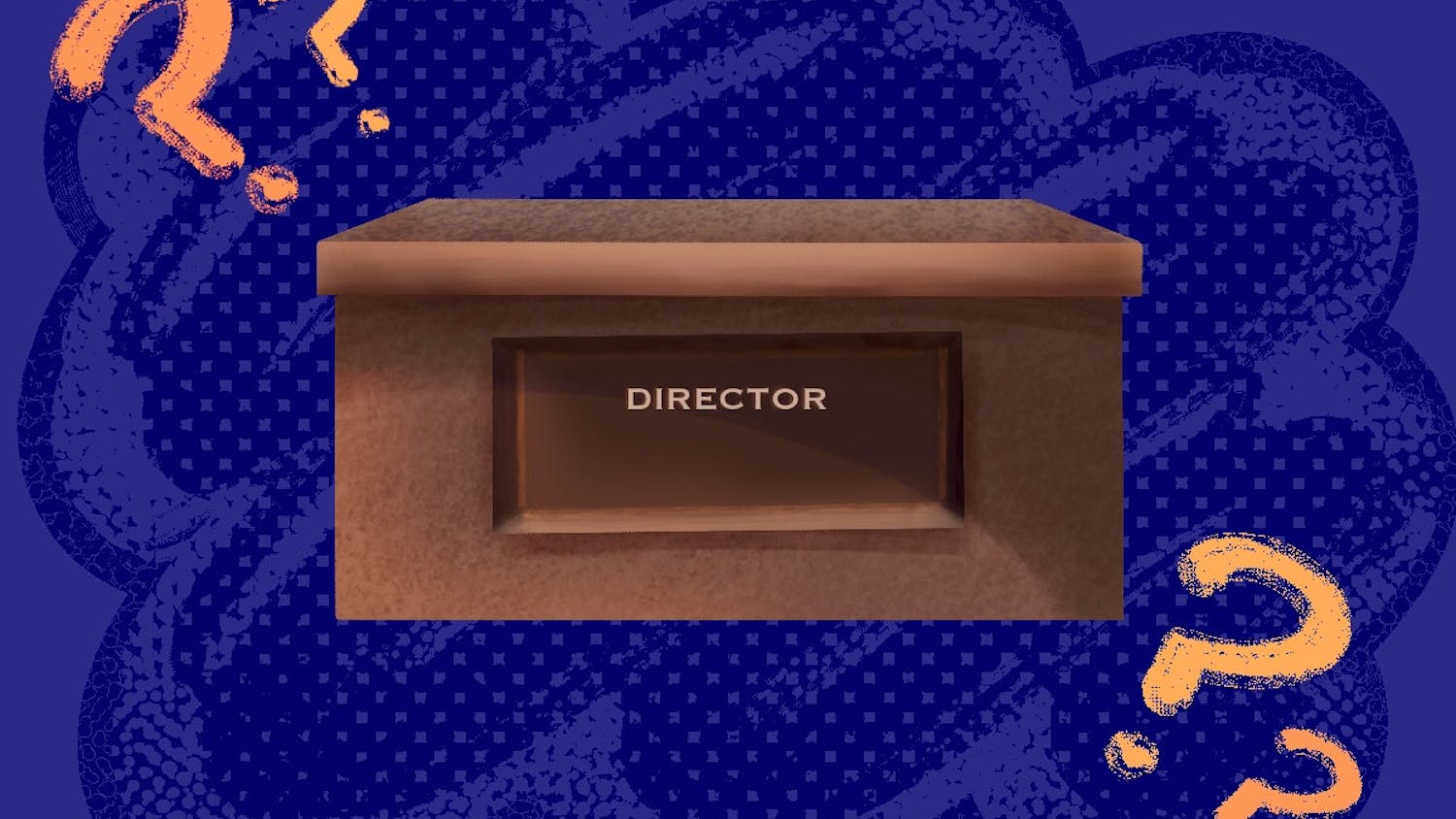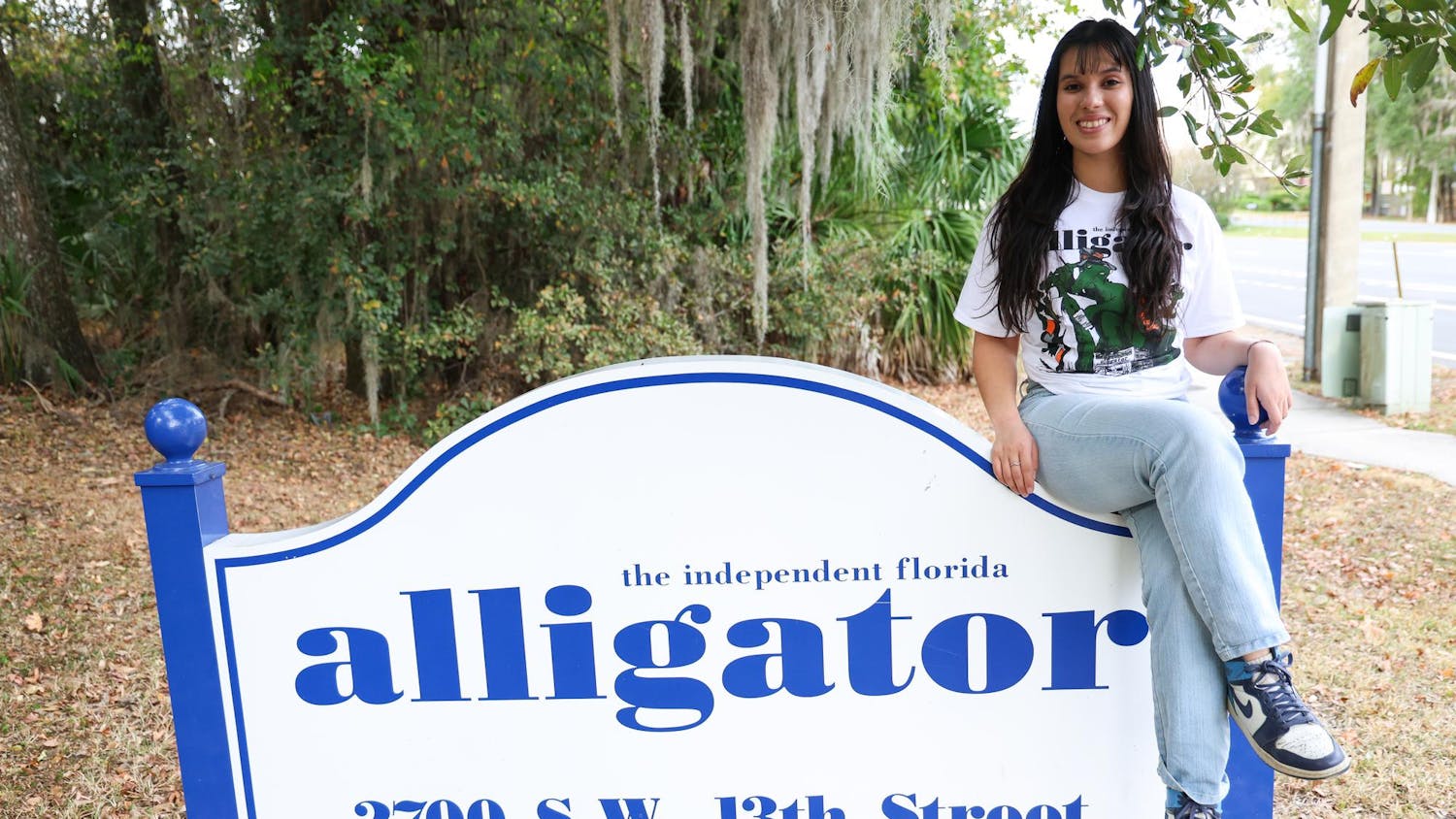
CWCTalks touches on racial trauma, anxiety and sexual assault.
Suddenly, Brianna Collins felt overwhelmed. Her heart-rate spiked, she felt dizzy and her chest tightened. It felt like running from a lion, she said.
But there was no lion. Instead, anxiety had chased and cornered the 21-year-old UF graphic design senior, she said. Presenting her work in front of peers at a UF art studio triggered the panic attack.
Collins’ experience led her to CWCTalks, a free podcast series about mental health among college students from UF’s Counseling and Wellness Center. The series teaches students about topics like anxiety and racial trauma, said Sara Nash, the podcast’s host and creator.
After Gov. Ron DeSantis announced that four UF students tested positive for COVID-19 in March, the university closed its campus. The CWC transitioned shortly after to remote therapy appointments and focused on digital resources like the podcast, according to Rosa West, the CWC’s assistant director of outreach and consultation. They began recording in May, Nash said.
“It really required us to think differently about the kinds of services we’re able to provide and offer students,” West said. “And most of it had to be electronic, including podcasts.”
CWC counselors have one-on-one conversations with Nash about their areas of expertise and personal experiences with anxiety and trauma, Nash said.
“We really do get to know more people intimately,” Nash, a UF clinical associate professor and CWC licensed mental health counselor, said. “It gives us a unique insight into the hard things in life that many of us are struggling with.”
The podcast is not a substitute for counseling, but she hopes it will encourage students to seek help and learn about mental health, she said.
Erika Long, a CWC consultation and referral specialist, talked about mental health in the Black community in the podcast’s second episode.
Members of the Black community suffer from emotional trauma related to systematic oppression, which include having less access to education, housing and healthcare, Long said.
Victims experience fatigue, nervousness and physical symptoms like high blood pressure and cardiovascular disease, she said. And members of the Black community tend to not reach out for help because it is seen as a weakness, she said.
“We’re taught to be very strong and resilient and seeking services can sometimes go against that personal value,” Long said.
The CWC offers individual counseling and a group therapy option called Invincible Black Women for students of color, Long said. Students can refer to the CWC website’s page on resources for Black UF students or call the CWC at (352) 392-1575.
The podcast’s fourth episode featured Kate Wrench, a CWC mental health counselor intern and consultation and referral specialist, who spoke about her experiences with sexual assault.
In Wrench’s episode, Nash said that 25 percent of undergraduates across the nation have experienced sexual assault, citing a 2019 report from the Center for Collegiate Mental Health.
Wrench said telling her story on a podcast was nerve-wracking. But it also felt empowering to share her story with other victims, she said.
Healing includes talking about the trauma, and sexual assault victims can find support in individual counseling services like those offered at the CWC, she said.
Other episodes were inspired by a survey student mental health advocacy program Awareness Wellness Ambassadors Reaching Everyone (AWARE) ambassadors filled out, Nash said.
The CWC pays podcast platform Omny $29 a month to distribute the content to Apple and Spotify, Nash said. And Dan Ypsilanti, a CWC graphic designer, edits and produces the episodes.
Audrey Paz, a 19-year-old UF psychology junior, listened to the podcast’s episode about coping with anxiety because her Attention-Deficit Hyperactivity Disorder (ADHD) symptoms, which include feelings of anxiety and restlessness, have increased since returning home to Miami in March.
The podcast reminded her to rediscover herself and counteract negative thoughts, she said.
“I think this podcast has really opened the door for me,” she said.
Correction: This article has been updated to reflect Sara Nash's correct title.





